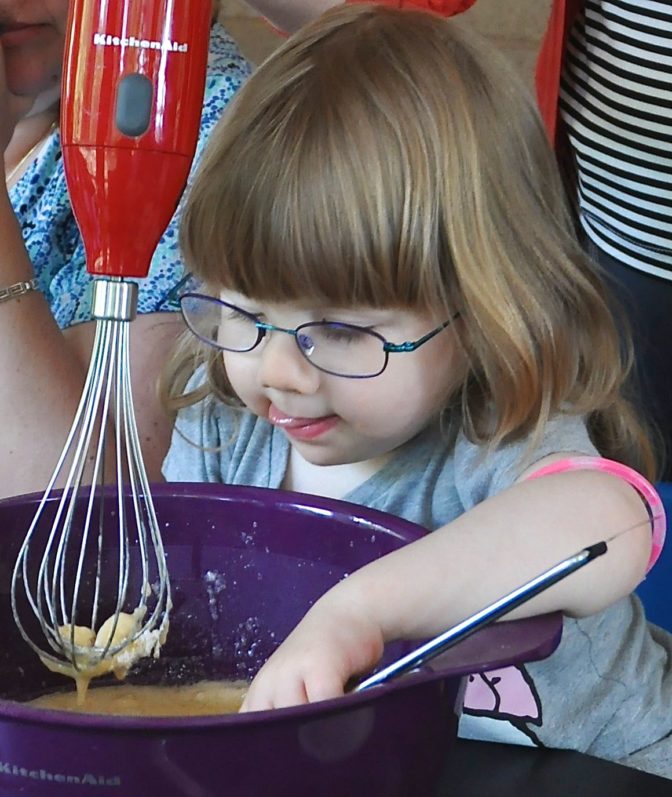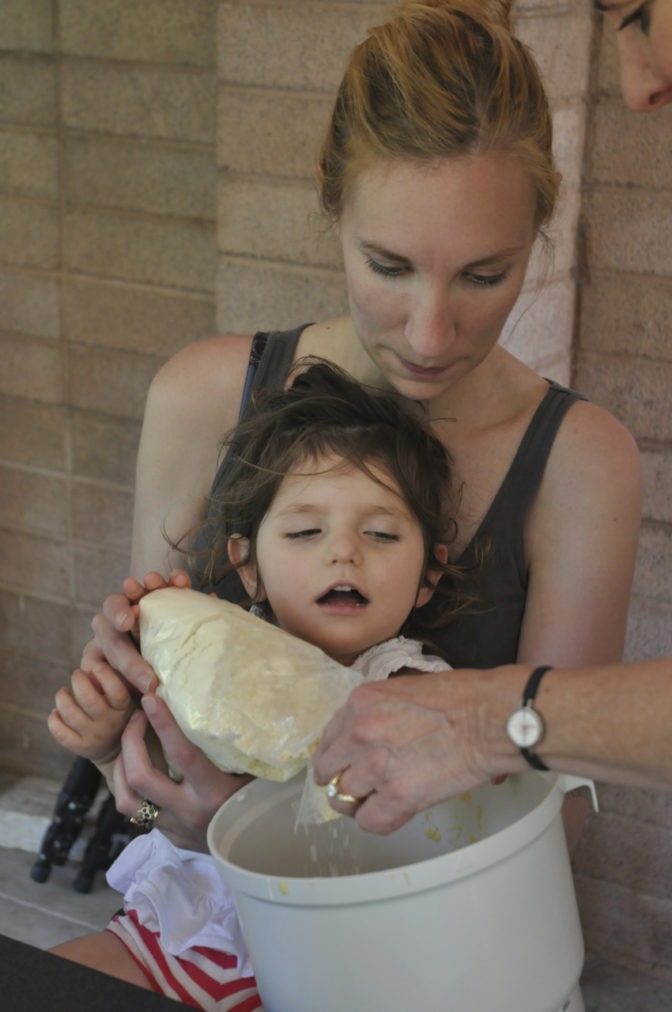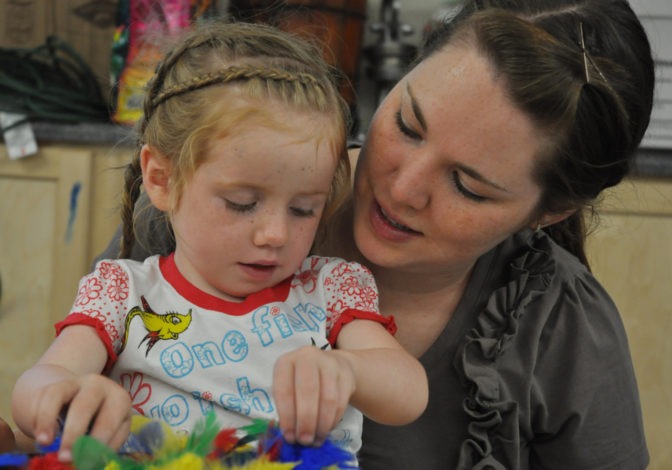Fun for families and children, Birth to three
In the natural environment of the home and community, our highly qualified specialists use early intervention best practices by listening to the family’s priorities and concerns and providing information and resources in ways that match the family’s learning style. Following the family’s lead while demonstrating adaptations to an activity, or providing an instructional video or materials in the family’s preferred language, are among many examples of partnering with families.
Highly-qualified Specialists
During home visits, our Specialists in early childhood blindness and low vision provide parent education in order to guide families/caregivers in their understanding of how blindness or low vision influences their child’s early development. The family and specialists are full members of each child’s Individual Family Service Plan (IFSP) Team.
Home Visits
The home visit is the heart of The LightHouse Little Learners Program. The approach is family-centered, play-based, and culturally-responsive. During visits the specialists support the parent/child relationship, listen and respond to each family’s priorities and concerns, and suggest community resources to benefit the whole family and the child.
The Assessment Process

At the start of LightHouse Little Learners services, the process of learning about each child’s development and learning style begins through observing the child at home and in the community. The assessment process may also include:
- Interviewing the parents or caregivers about their child’s development in order to plan next steps
- Review of medical records
- Use of developmental assessments designed for young children who are blind or have low vision.
Specialized Approaches
- Our Specialists in early childhood blindness and low vision believe the family is the best and first teacher of the child. They join the parent or caregiver in everyday activities to encourage early literacy and pre-Braille awareness based on each child and family’s needs. They support early concept development by encouraging the child’s inclusion in family activities, such as naming noises and voices around the house, labeling furniture and objects in Braille, and including the child in step-by-step daily routines such as preparation for bath or meal time.
- The Specialists may also introduce Active Learning, a philosophy of Danish Educator, Lilli Nielsen to encourage the child’s growth toward independence.
- The Specialists introduce Accessible and Assistive Technology into daily life, based on individual needs.
Parent Education
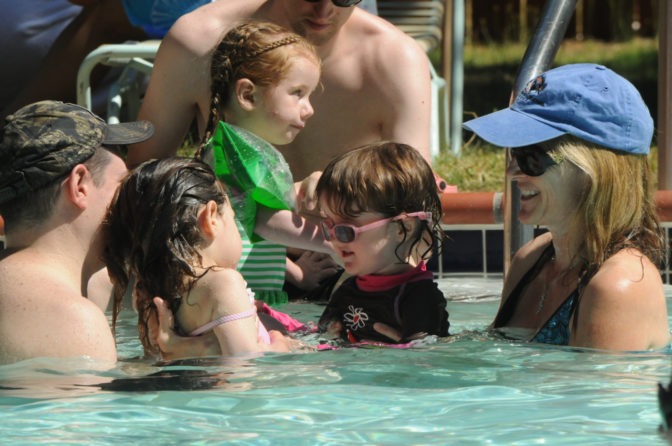
Whether at home or with other families in a happy gathering place such as a park or playground, families come together to learn from one another and have fun, while building community through deeper, long-lasting relationships.
Families learn advocacy skills as they seek the best pediatric vision care for their child, and access services and resources in medical, social and educational settings.
Medical Visit Partnership
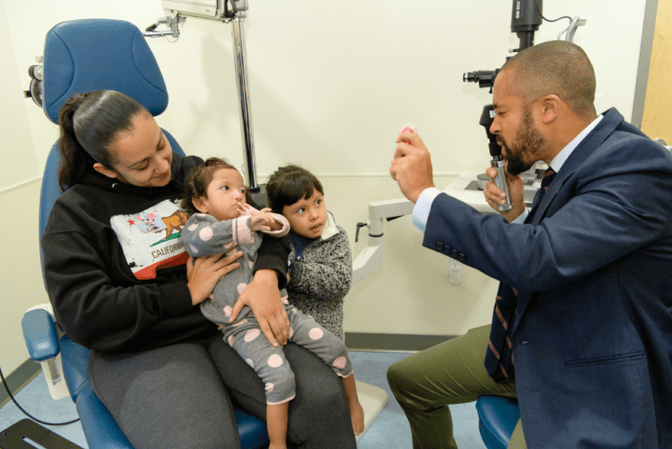
The doctor, the family and the Early Childhood Blind and Low Vision Specialist form a strong team when they meet and share key information about the child during important medical appointments. Doctors increase their knowledge of community resources for families of children who are blind or have low vision; parents and caregivers are prepared with questions for the physician, and the specialist takes notes and joins the family in incorporating treatment recommendations into daily life.
Consultation with Community Early Intervention Programs

LightHouse Little Learners’ Early Childhood Blind and Low Vision Specialists share ideas and resources with other early intervention program staff in the community about the influence of blindness and low vision on early development.
Specialists recommend accommodations and adaptations, such as reading the circle time book to the child with low vision in advance, so she has time to look at the pictures up close; or providing a story box of real objects for the child who is blind, to encourage hands-on participation in story time; or installing a switch to activate a favorite toy for a child whose additional disabilities include blindness or low vision.
Community Outreach
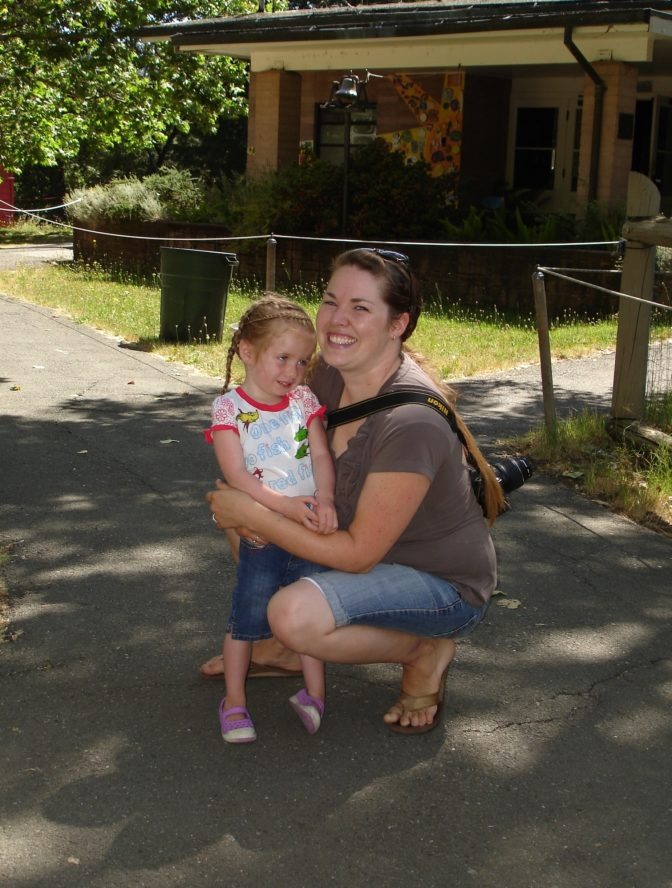
Little Learners staff will regularly reach out to the medical community, early intervention programs for children with disabilities, and to local service organizations in order to identify families who may be in need of LightHouse Little Learners’ services.
Service Locations and Community Gatherings
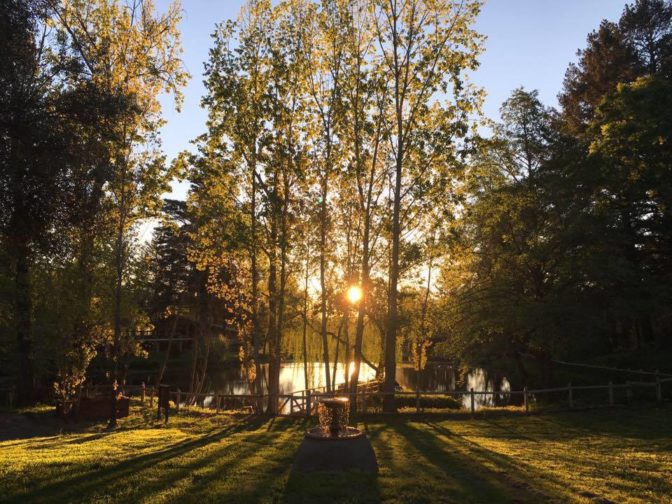
LightHouse Little Learners’ services will be available in several northern and central California counties, including those counties where LightHouse currently serves the community: Alameda, Contra Costa, Humboldt, Marin, Napa and San Francisco.
In addition to LightHouse’s San Francisco headquarters, and when permitted according to local health and safety guidelines, families will come together in a variety of locations, including the organization’s satellite locations in Alameda, Contra Costa and Humboldt Counties.
Families will also be welcomed for regular Family Weekends in the natural beauty of LightHouse’s Enchanted Hills Camp (EHC) in the hills of Napa. EHC has recently expanded with new facilities and outdoor spaces to encourage adventure, to foster long-lasting family friendships and to enhance each child’s independence.
All photographs were taken on location at LightHouse’s Enchanted Hills Camp in Napa during a past annual family camp session.


